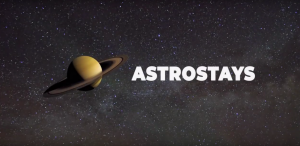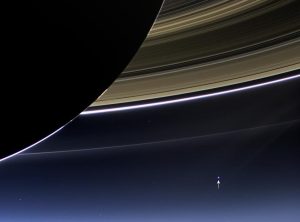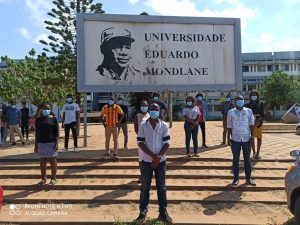Flagship THEMES
![]() Lea esta información en español
Lea esta información en español
The IAU OAD has designated Flagship themes, which represent the best astronomy for development ideas tested out successfully. Projects based on these Flagship themes will be implemented globally with external fundraising. Flagships allow us to scale impact of astronomy for development over a substantial part of the world. The current Flagships and the projects under them are:
Flagship PROJECTS
Current Flagship Projects of the OAD:
Flagship Theme 1: Sustainable, local socio-economic development through Astronomy
This Flagship aims to use an astronomical facility, such as an observatory or planetarium, as a “hub” to stimulate various socio-economic benefits for the local community. Benefits could include job creation through astronomy-related tourism; community skills development; educational programmes; stimulation of local innovation; alternative activities for youth in order to keep away from negative/harmful activities; and infrastructure development. The establishment of such a facility in close collaboration with relevant government, industry, academic and development partners, local and traditional leadership, will ensure the sustainability of the initiative.
Projects
AstroStays
Astrostays utilize astronomy as a tool for community development. They are  owned and operated by the community who benefit directly by offering astronomy and accompanying services. Visitors can expect a holistic program involving cultural heritage and exchange, local art & craft, indigenous folklore, sustainable living, eco-tourism, and more.
owned and operated by the community who benefit directly by offering astronomy and accompanying services. Visitors can expect a holistic program involving cultural heritage and exchange, local art & craft, indigenous folklore, sustainable living, eco-tourism, and more.
Flagship Theme 2: Science diplomacy through Astronomy: Celebrating our Common Humanity
Astronomy brings us a perspective of the beauty and scale of the universe. Most famously, astronomer Carl Sagan described the Earth as a “Pale Blue Dot”. He used the cosmic perspective to inspire and influence how people interact with their fellow human beings, and our planet. This project aims to use the inspiring potential of astronomy to stimulate a sense of tolerance and common humanity.
projects
Pale Blue Dot
Pale Blue Dot is an education project that uses astronomy to promote a sense of  global citizenship in young children. The cosmic perspective of our Earth is a powerful tool to stimulate solidarity, appreciation of other cultures and environmental awareness. Pale Blue Dot is led by the European Regional Office of the OAD.
global citizenship in young children. The cosmic perspective of our Earth is a powerful tool to stimulate solidarity, appreciation of other cultures and environmental awareness. Pale Blue Dot is led by the European Regional Office of the OAD.
It builds on the project Universe Awareness and will include hands-on educational materials for children that use photos of our Earth from space with the appropriate message about global citizenship.
Learn about Pale Blue Dot Pilot Project RecommendationsAstronomy for Mental Health
Even before the COVID-19 pandemic, mental health disorders such as depression and anxiety contributed significantly to the global burden of disease. The increase in social isolation, economic inequity, political unrest, and other stressors have increased the prevalence of these illnesses across the world. Moreover, the measures taken to decrease the spread of the virus such as lockdowns and restrictions on social interactions—while necessary—have drastically reduced the type and quantity of coping mechanisms available for people to take care of their mental health. In response to these problems, the project ‘Astronomy for Mental Health’ aims to explore how various modes of astronomy, including stargazing and education, can be a viable tool for improving mental well-being.
Learn about Astronomy for Mental Health ResourcesFlagship Theme 3: Knowledge and Skills for Development
This flagship focuses on the use of astronomical knowledge, and skills used in astronomy to tackle development challenges. This includes methods, techniques widely used in the field including data handling, data analysis, machine learning as well as the necessary compute facilities. Projects under the Flagship may be executed in the form of advanced educational programmes, hackathons, competitions or other original interventions that focus on knowledge transfer and/or applying these skills towards development problems.
PROJECTS
Big Data Hackathons
The Office of Astronomy for Development (OAD)  and DARA Big Data (Development in Africa through Radio Astronomy) in partnership with the Inter-University Institute For DataIntensive Astronomy (IDiA) will be organizing a number of Big Data Hackathons in Africa. The hackathons are part of a multi-year program to develop data science, programming and related skills in Africa in the context of huge radio astronomy projects. They are led by OAD-DARA Big Data Fellow Dr. Nikhita Madanpall.
and DARA Big Data (Development in Africa through Radio Astronomy) in partnership with the Inter-University Institute For DataIntensive Astronomy (IDiA) will be organizing a number of Big Data Hackathons in Africa. The hackathons are part of a multi-year program to develop data science, programming and related skills in Africa in the context of huge radio astronomy projects. They are led by OAD-DARA Big Data Fellow Dr. Nikhita Madanpall.
Due to the onset of the global pandemic, all hackathons have been virtual and organized remotely.
From Astronomy to Remote Sensing
While astronomers spend most of their careers looking up at the night sky, the very same analysis techniques that are used to explore the universe can be used to explore planet Earth. Remote sensed images are powerful tools in sustainable development. They can be used to measure deforestation and dwindling freshwater resources, or to monitor atmospheric composition and economic development.
Collaboration Gateway
Enter the OAD Collaboration Gateway to initate a collaboration process that we hope will help translate astronomy knowledge and skills, with the guidance of development partners, into positive outcomes for society. Whether you are from the astronomy or development communities, we hope you will find a way to get involved in a simple yet meaningful way.
Background:
The OAD has identified five flagship themes that encapsulate the idea of astronomy for development. The themes were chosen in early 2019, based on the experience gained from supporting projects and reviewing more than 1000 proposals. We also sought input from our regional offices and considered special OAD projects, partnerships, international trends, etc.
Themes:
- Stimulating economies (e.g. astrotourism, observatories for communities, etc)
- Science diplomacy (e.g. peace, post-conflict, partnerships, policy, etc)
- Knowledge and skills from astronomy (e.g. data science, teacher training, schools, etc)
- Addressing inequality (e.g. gender, geographic, ability, etc)
- Technology from astronomy (e.g. software, water, solar, dark skies, etc)
